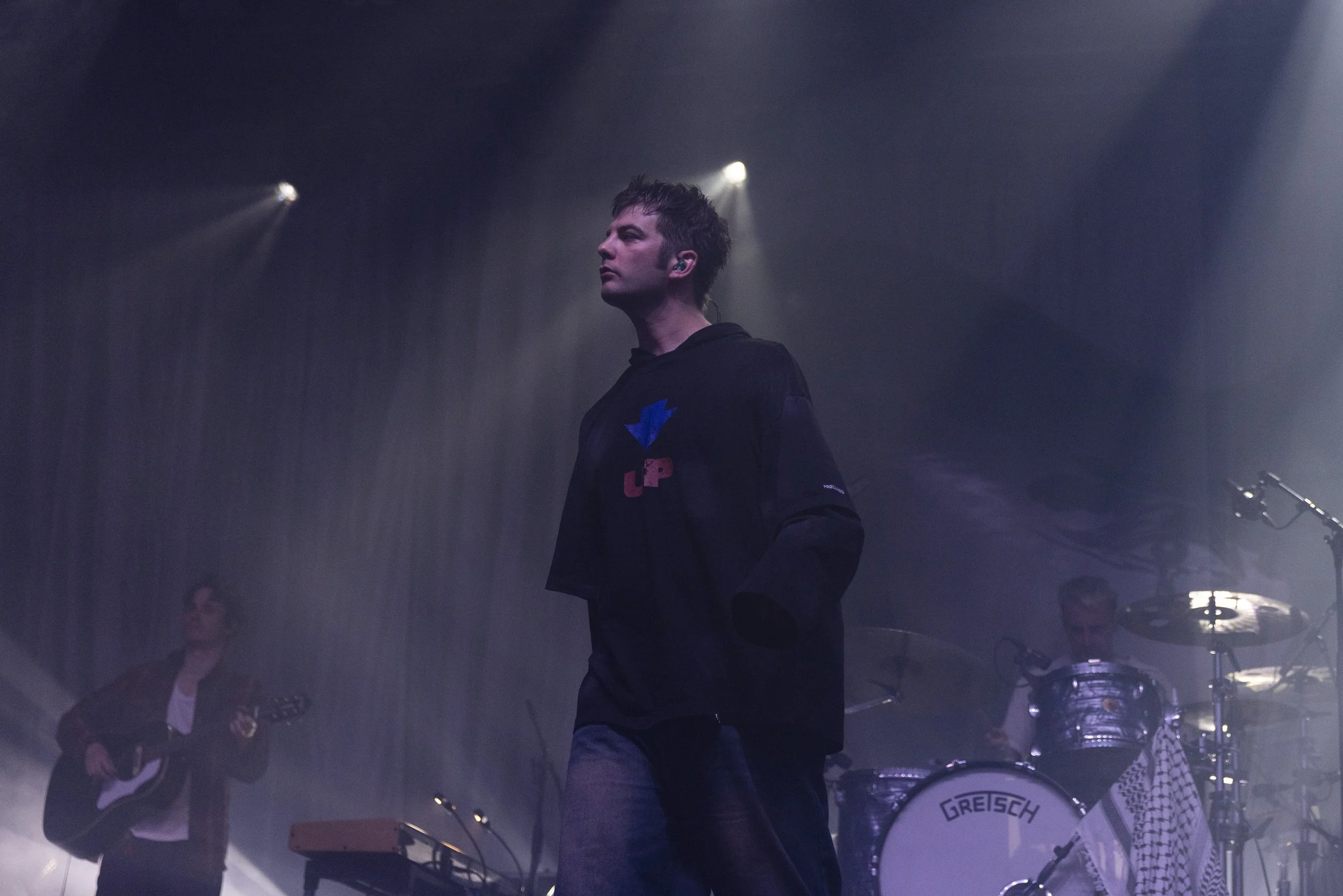Good Music in Bad Times - Fontaines D.C. at Barba Negra: post-punk, poetry, and the tensions of now
Photos WANDA MARTIN
Words VIOLA WELLS
There was an eight-year-old kid standing at the edge of the pit, and next to him, a man in his sixties gently nodding along—like he’s been listening to this kind of music for two decades, unbothered, unchanged. The crowd that filled Barba Negra was strikingly diverse: people of different ages, styles, nationalities, all drawn by something they’d clearly been missing. A concert that wasn’t about image or aesthetics. It was music and poetry, morality and rage—like bread to the hungry.
We talk a lot about music, eras, cultural flagbearers—but under the noisy and often self-referential monologue of pop culture, there are quieter, bubbling movements that keep searching for something meaningful. In the early 2000s, we witnessed a visible shift as mainstream electronic music faded into the background, and indie rock rose in its place. Back then, guitar music with a somewhat intellectual, arty edge had its moment, and going to gigs became less about trend and more about community. That wave has since ebbed. The bands have aged—gracefully—and so have their fans. Meanwhile, Gen Z’s alternative identity was shaped elsewhere, through the brittle layers of internet irony and post-trap aesthetics.
But as the world’s economy, political tension, and the overall future of this planet spiral downward, alt-rock and post-punk bands are becoming relevant again—mainstream again. It’s a terrifying kind of cyclic marker: when things go to shit, this sound re-emerges. But there’s comfort in that, too. It means we still get to experience cathartic live shows. Events where lyrics matter more than outfits, where no one gets side-eyed for not wearing Jordans or Off-White. Because—let me repeat—this scene isn’t about lifestyle. It’s about music. It’s about poetry.
Fontaines D.C.’s story begins during their shared college days in Dublin, where poetry and music were not two separate pursuits but one shared language. Their debut album was born from this synthesis. Three studio albums later, in 2024, they released Romance—an album that, while not exactly “underrated,” pushed them to the edge of global phenomenon status. The album’s concept wasn’t built on genre or sound but on visual and emotional moodboards: feelings, colours, cinematic fragments. In an interview that’s soon to be published, they told me that Romance wasn’t intended to be a concept album—it emerged as one organically, through a kind of synesthetic process. Diverse in arrangement, yet tightly cohesive. It feels, to them, like their most complete work to date.
At Barba Negra, it was immediately clear that a good portion of the crowd had travelled—particularly many Irish fans, adding a charged undertone to the evening. A kind of togetherness was hanging in the air, woven and dense, the kind of atmosphere I haven’t felt at a Budapest show in years.
No one expected frontman theatrics from Grian Chatten, and we didn’t get any. Fontaines D.C. doesn’t chase connection in the conventional way—no banter, no audience call-and-response. The music speaks. The tension, the release, the poetry in motion. The only clearly spoken sentence from Grian all night was: “Free Palestine.” Part of the crowd echoed it back. It didn’t feel like performative politics. They say it at every show. It’s a core message. It lives in them.
The set was beautifully constructed, with dynamic highs that hit exactly when they needed to. Most of the songs came from Romance, but the setlist had enough variation to avoid feeling like a promotional stop. Their musical and vocal performance was top-tier—although sadly dulled by Barba Negra’s acoustics. Even mid-crowd, it often felt like listening from two hundred meters away.
What I had feared—that this would be just another tired performance, worn down by nearly a year of touring—didn’t materialise. Their presence was sharp and intent. Bassist Deego told me that while they don’t love over-interacting with the crowd, what matters to them is seeing actual reactions, real faces—not just people hiding behind their phones. I hope they felt that in Budapest. I certainly did.











